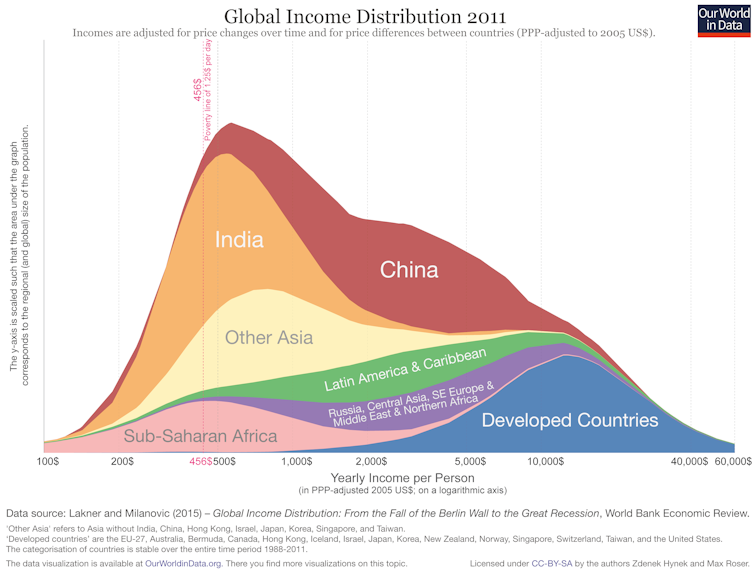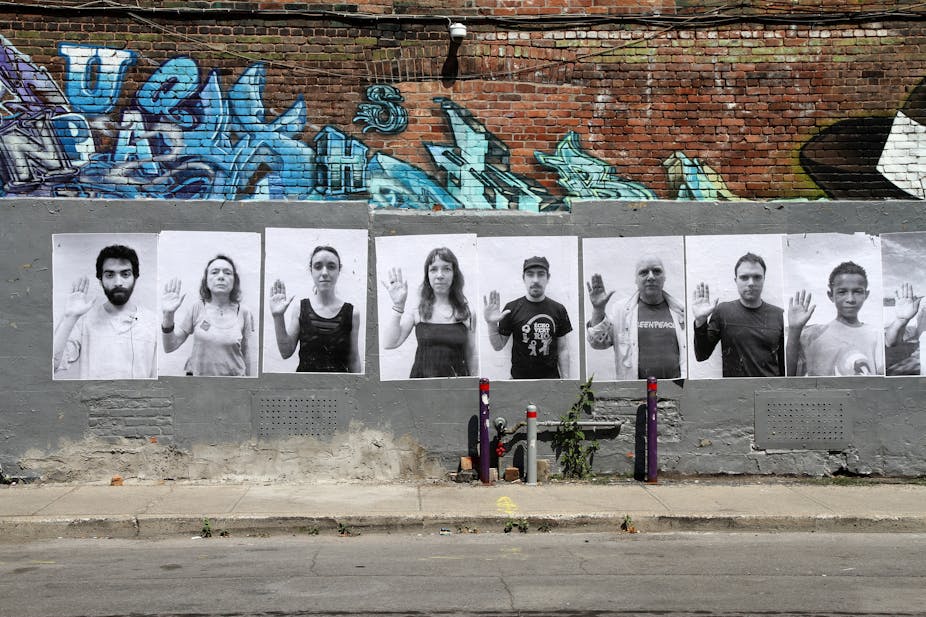Ever since it was first established, the notion of social progress has been controversial, and it remains hotly contested. Many people continue to deny its importance, while others contest the notion of its implicit positivity.
Such doubts and ambivalence are not unique, as belief in the possibility of progress have always had their ups and downs. In contemporary history, a period of strong belief in social progress and high hopes for its continuance was the era running from about 1950 to 1980, in spite of the threat of a thermonuclear Third World War.
It was the time of the arrival of mass consumption and of the extension of social rights in the well-off quadrant of the world. In Asia and Africa it was the time of national independence movements coming to fruition through the “new emerging forces” of the 1955 Bandung meeting. In Latin America, it was the years when the high modernist capital city Brasilia was built, and when new futures were proclaimed – on the one hand by the Cuban revolution and on the other, the “Alliance for Progress”.

It was the moment of triumph and a peak of strength of mass social movements that firmly believed in progress in the North, of national liberation movements in Asia and Africa, of trade unions and workers’ parties in the developed capitalist world, and of the Communist movement, for a while basking in the glory of the Sputnik and the spread to Asia and Latin America.
After socialism
That world of the recent past, however, is now gone. With some exceptions in Latin America, Socialism has largely disappeared from the horizon and the few remaining welfare states are struggling to stay afloat. Discretionary consumption and the possibility of a middle-class life hold a growing interest for those living in Asia, Latin America and Africa. In East Asia, however, this way of life is not (yet) widely convincing.

At the same time, in Europe, North America, and Japan, these prospects no longer inspire or hold out much hope. On the contrary, for a growing number of younger people in particular, middle-class consumerism appears increasingly fragile or elusive.
The inclusivity of the nation-state is challenged, in different ways, by both the mobility of capital and the mobility of labour. The former constrains the economic resources of the state, the latter complicates and sometimes disrupts the existing concept of citizenship. Many inclusive popular mass movements and organisations have been eroded or fragmented. Movements that seek to exclude others, be it through ethnicity, religion or other grounds, have seen a considerable resurgence and in some cases have even gained power.

Significant minorities are holding two opposite and delimited visions of the future. The business community is focused on technological advances without any perspective of broad social progress, while deep ecology movements believe that reduced consumption and zero growth in the rich countries is the only way to avert a climate catastrophe. In this situation, what could a realistic vision of social progress be?
A human community of nations
Today humankind is standing at a historical peak of its possibilities, and social progress is one of them. The stage we have reached is due to revolutionary technological, biomedical and economic advances, as well as long-term social inclusion made possible by reducing – if by no means doing away with – long-institutionalised racism and sexism. Also crucial is a huge growth of ecological and climate knowledge and awareness. Social progress will mean realising these possibilities.
To reach such goal, the cosmopolitan world we know will have to radically change to become a human community of nations. It was foreshadowed (with a heavy German accent) in the works of the dissident Enlightenment philosopher Johann Gottfried Herder. Examples are already on display through recurrent cultural and culinary festivals of nations in major immigrant cities such as New York and London.
However, we currently are moving in the opposite direction. Nations are increasingly divided economically and ideologically, and most are in need of reconstitution. Yet awareness of the challenges facing the world might contribute to this reconstruction. The way countries will deal with global climate agreements will probably be the most pertinent indicator of progress in this respect.
Global powers confronted
More than ever before, today there is a wider and denser net of globally networked social movements and of humanitarian and human rights NGOs working for global inclusion and the public good.

Yet the hopes many had put in alternative globalisation movements and initiatives such as the World Social Forum have faded. We’re also now facing the rise of new conservative movements fuelled by religious fundamentalism and nationalist extremism.
Contradictions and challenges also persist on the governance level. International institutions are stronger and more influential than 25 or 50 years ago – the United Nations, the Group of Twenty, the European Union, the African Union, the Association of Southeast Asian Nations, the Community of Latin American and Caribbean States. But they still fail to address some of the crucial issues they were set up to help resolve.
For example, while important work is done to counter international tax havens and money laundering, there is not one global institution in sight for regulating the world economy.

Individual empowerment is continuing to expand, with extended education and digital connectivity, providing wider opportunities for women around the world, and generating international youth and children’s cultures. But this empowerment is often hemmed in by increasing social segmentation and mounting employment crises.
New movements for collective empowerment of the most disadvantaged have emerged, including for indigenous peoples, informal workers and urban slum-dwellers. But they are usually much weaker than the great labour and liberation movements of the past. Indeed, the informalisation and precarisation of work, with their denial or minimisation of workers’ rights seems be the predominant tendency.

A ‘great transformation’
In conclusion, a new beginning for global social progress could work in tandem with technological and biomedical advances. As Hungarian economist Karl Polanyi wrote in 1944, a “great transformation” is not beyond the realm of possibility, even if its short-term prospects look modest.
Inclusive global institutions, sustained by inclusive global movements and networks, increased individual empowerment worldwide, by education, connectivity and improved health, and organisational rights and possibilities for the world’s most disadvantaged are prerequisites. They are all aimed at increasing universal human potential. Both old and new social movements will be part of this seemingly utopian enterprise.
Scholars can contribute by exploring the viability of concrete ideas toward achieving this vision. They also need to dare to study long-term possibilities for the future, going beyond policy analysis and imagining how alternative sets of institutions can advance social progress.

This post belongs to a series of contributions coming from the International Panel on Social Progress, a global academic initiative of more than 300 scholars from all social sciences and the humanities who prepare a Report on the perspectives for social progress in the 21st Century. In partnership with The Conversation the posts offer a glimpse of the contents of the Report and of the authors’ research.


